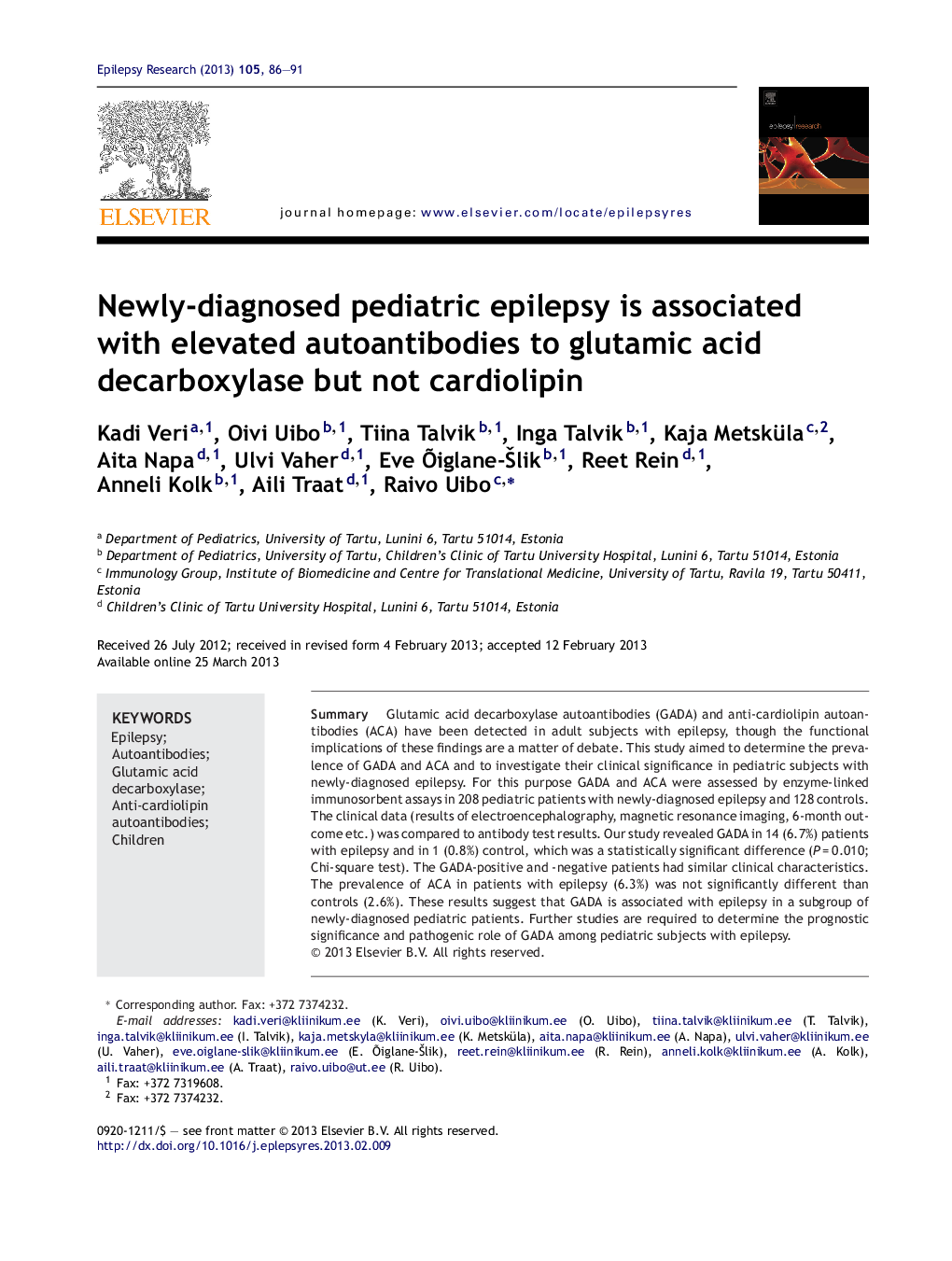| Article ID | Journal | Published Year | Pages | File Type |
|---|---|---|---|---|
| 6015962 | Epilepsy Research | 2013 | 6 Pages |
Abstract
Glutamic acid decarboxylase autoantibodies (GADA) and anti-cardiolipin autoantibodies (ACA) have been detected in adult subjects with epilepsy, though the functional implications of these findings are a matter of debate. This study aimed to determine the prevalence of GADA and ACA and to investigate their clinical significance in pediatric subjects with newly-diagnosed epilepsy. For this purpose GADA and ACA were assessed by enzyme-linked immunosorbent assays in 208 pediatric patients with newly-diagnosed epilepsy and 128 controls. The clinical data (results of electroencephalography, magnetic resonance imaging, 6-month outcome etc.) was compared to antibody test results. Our study revealed GADA in 14 (6.7%) patients with epilepsy and in 1 (0.8%) control, which was a statistically significant difference (PÂ =Â 0.010; Chi-square test). The GADA-positive and -negative patients had similar clinical characteristics. The prevalence of ACA in patients with epilepsy (6.3%) was not significantly different than controls (2.6%). These results suggest that GADA is associated with epilepsy in a subgroup of newly-diagnosed pediatric patients. Further studies are required to determine the prognostic significance and pathogenic role of GADA among pediatric subjects with epilepsy.
Related Topics
Life Sciences
Neuroscience
Neurology
Authors
Kadi Veri, Oivi Uibo, Tiina Talvik, Inga Talvik, Kaja Metsküla, Aita Napa, Ulvi Vaher, Eve Ãiglane-Å lik, Reet Rein, Anneli Kolk, Aili Traat, Raivo Uibo,
